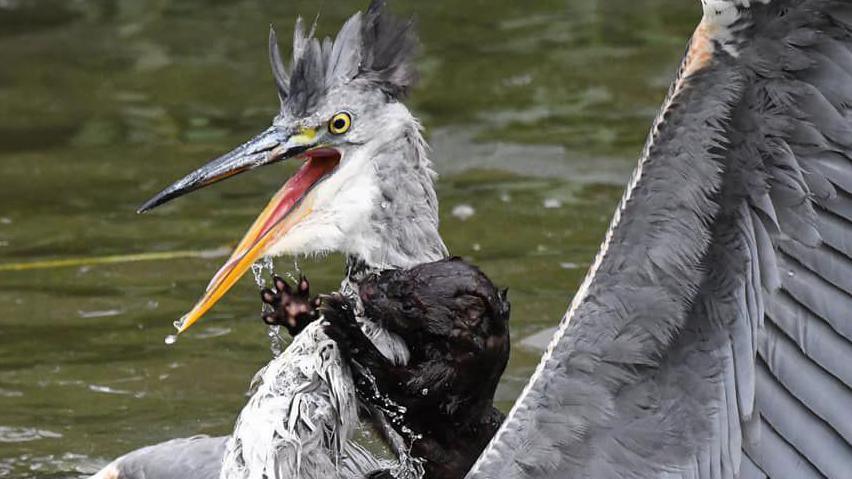Mink eradication aims to save nature's 'good guys'
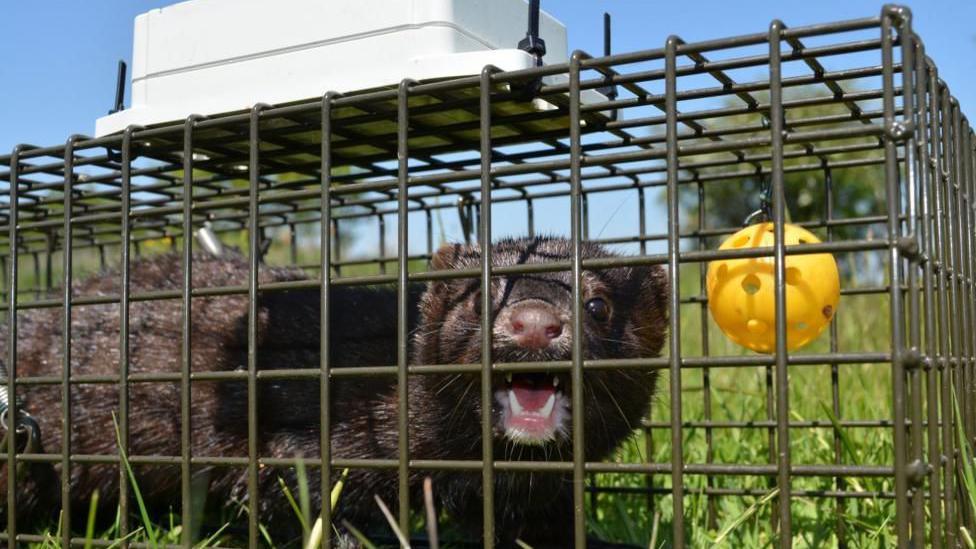
The Waterlife Recovery Trust said completely eradicating mink was a "realistic dream”
- Published
The days of the mink could be numbered in the south-east of England as part of efforts to save nature’s “good guys”, the water vole.
Environmental groups say there has been a 97% decline in the number of water voles nationally since 1950 – largely due to mink.
The Waterlife Recovery Trust (WRT), with the help of farmers, landowners and £20,000 from the Environment Agency, have laid 2,000 floating "smart traps” across waterways to help eradicate the invasive creature.
Following successful efforts in Norfolk and Suffolk, which have seen no evidence of mink reproduction in the last two years, the new target areas are Kent, Surrey and East and West Sussex.
The other target areas are Berkshire, Hampshire and south London.
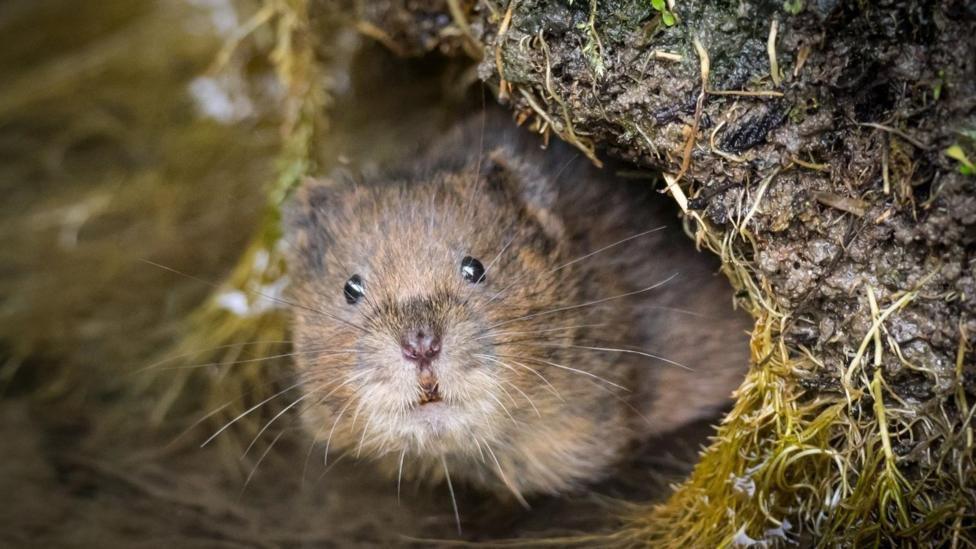
Environmental groups say there has been a 97% decline in the number of water voles nationally since 1950
Minks, native to North America, were brought to Britain in the 1920s to be farmed for their fur.
Some escaped and others were released by animal rights activists.
They have no natural predators in the UK and previous attempts to eradicate them have had limited success.
But floating "smart traps" containing an extract from mink anal glands lure in the animal. As soon as a mink enters the trap, an alert is sent to a volunteer and the animal is humanely killed.
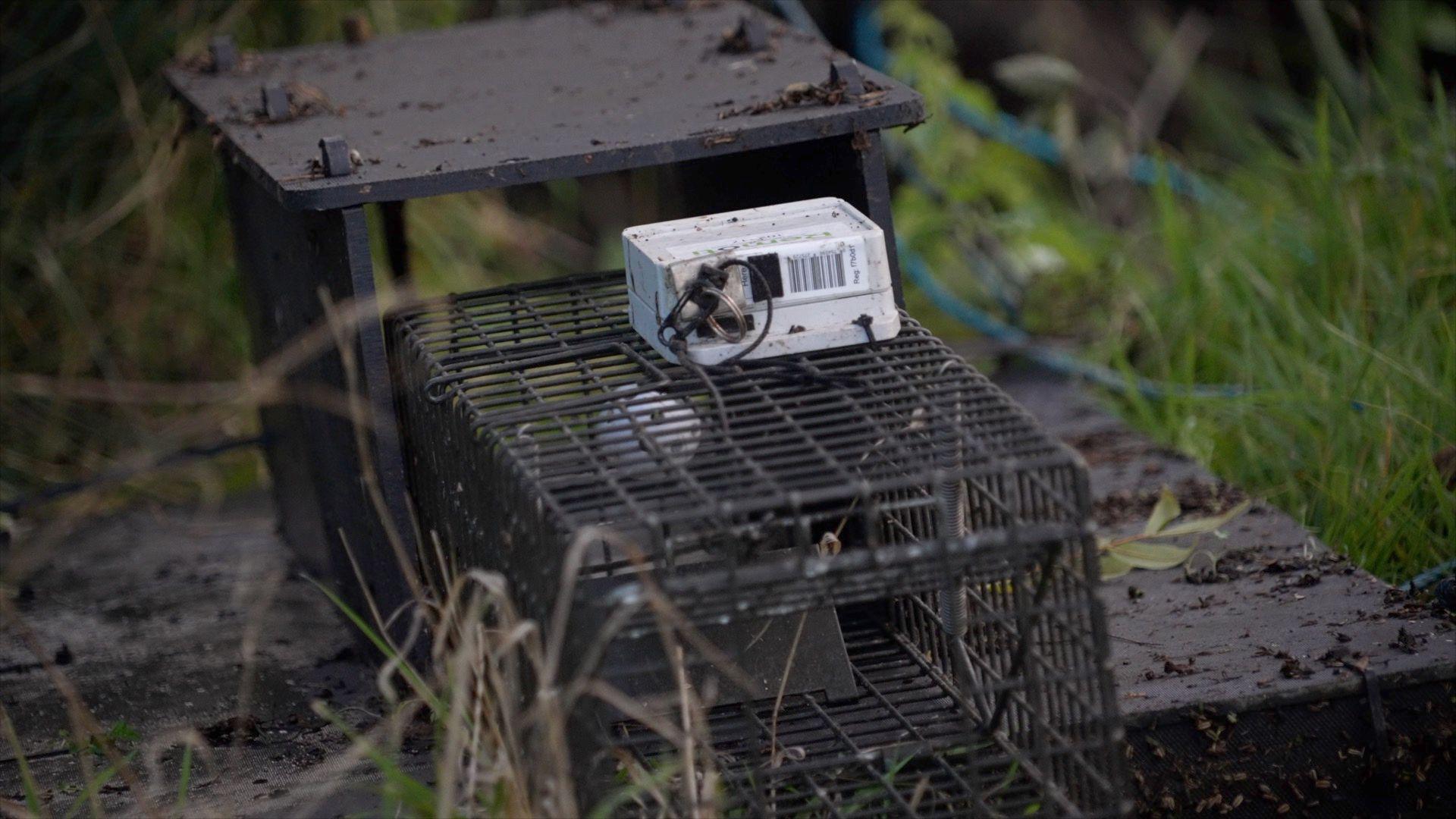
The method involves a "smart" trap which sends an alert message immediately a mink is caught
The WRT said completely eradicating mink from the whole of Britain was now a "realistic dream”.
Prof Tony Martin, from the WRT, said: “It’s our choice. If we sit on our hands and do nothing, we’re consigning to death water voles, kingfishers, moorhens, ducklings, the good guys.
"But we can choose to do something about it. We can reverse the damage that humans in past generations have caused, and we can fix this.
“It’s one of those rare things, a conservation success story.”
Follow BBC Kent on Facebook,, external on X, external and on Instagram., external Send your story ideas to southeasttoday@bbc.co.uk or WhatsApp us on 08081 002250.
Related topics
- Published15 January 2024
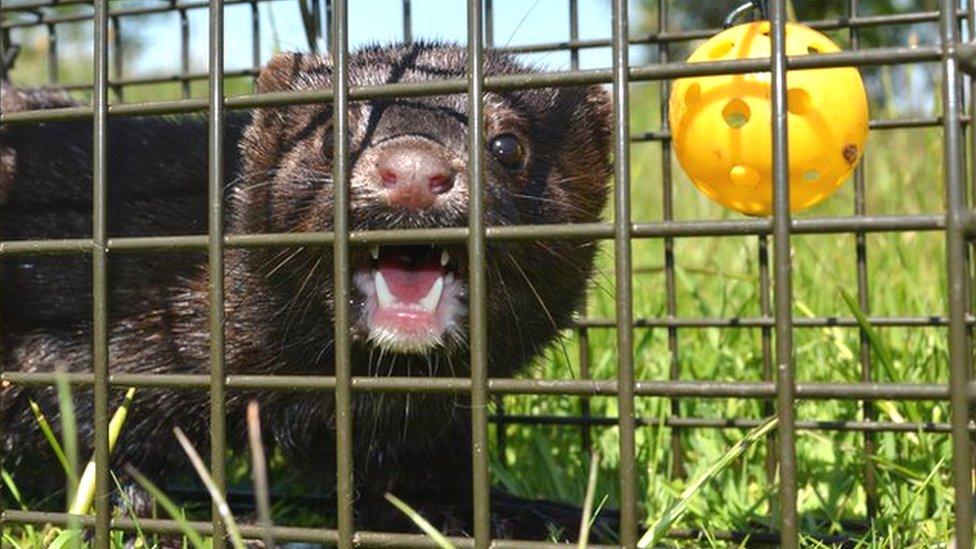
- Published19 August 2024
